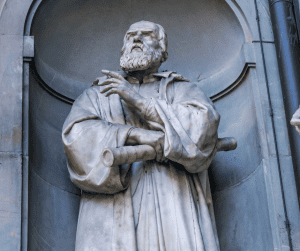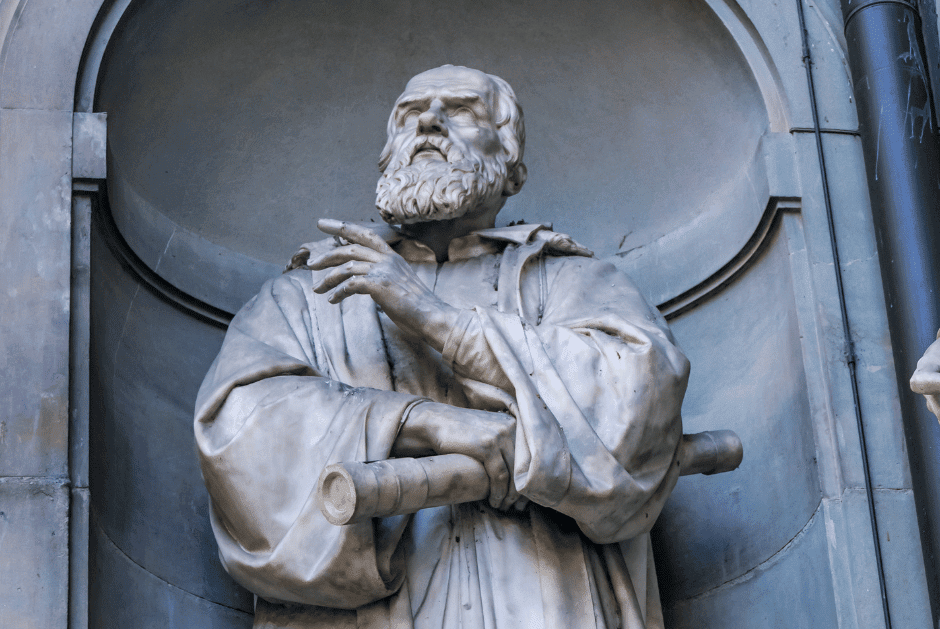The earth is flat, and so is the moon. Covid was spread on purpose, but also it doesn’t exist. Sun damage does not cause cancer, in fact – it cures it! Few, if any, of this article’s readers will believe any of those statements. However, you will find an abundance of these illogical, often ridiculous beliefs online and you may ask yourself: how could anybody believe such nonsense? Beyond misinformation, the answer may lie in something psychological.
The Mind of a Conspiracy Theorist
The term martyr complex describes a person who consistently exhibits self-sacrificing behaviours beyond that which is normal or healthy. Usually, this means regularly working overtime, prioritising others’ needs above one’s own, and eventually facing burnout. However, a link has been discovered between martyr complex and narcissistic personality disorder which could explain the behaviours that some extreme conspiracy theorists exhibit. A narcissistic martyr is motivated in their excessively sacrificial actions by their desire for praise, admiration, and gratitude. The sacrifices they make are not merely accidental consequences, but a willing act.
Something about being different and standing out from the flock appeals to all human nature. But, to a narcissistic martyr, isolation of their theories is not a sign they might be wrong; but rather, a sign of intellectual courage. Their craving to feel like an underdog becomes a central narrative in their lives, with the hope that enduring persecution will eventually lead to acknowledgement and acclaim, like Galileo.
Galileo and True Intellectual Courage
 Galileo was an Italian astronomer, physicist, mathematician, and engineer who provided evidence that the Earth (and other planets) revolves around the sun, rather than everything revolving around the Earth. This conflicted with the Catholic Church which consequently banned his books and convicted him of heresy, resulting in a 10-year imprisonment and house arrest until his eventual death. Galileo displayed true intellectual courage in the face of ignorance and conformity, and his legacy persists to this day.
Galileo was an Italian astronomer, physicist, mathematician, and engineer who provided evidence that the Earth (and other planets) revolves around the sun, rather than everything revolving around the Earth. This conflicted with the Catholic Church which consequently banned his books and convicted him of heresy, resulting in a 10-year imprisonment and house arrest until his eventual death. Galileo displayed true intellectual courage in the face of ignorance and conformity, and his legacy persists to this day.
To be clear, Galileo was not a narcissistic martyr. However, it is his archetype that some conspiracy theorists wish to achieve. They often select theories that are: beyond controversial, dismiss and
undermine well-established facts of life, and could even incite violence and hatred. Unlike Galileo, whose scientific endeavours sought truth and faced genuine opposition, most extreme conspiracy theorists are facing an imagined oppressive force. And, if you look closely, you can see that this actually motivates them. Consequently, their ensuing social punishment can blind them from the truth even further.
Kate Shemirani and Narcissistic Martyrdom
Kate Shemirani, an NSH nurse turned COVID conspiracy theorist, became a prominent anti-vaccine activist in the midst of the COVID-19 pandemic. She believed that coronavirus was a “scam”, plotted by the CIA to commit a mass genocide, and she would regularly tout her claims to thousands of followers online, as well as at rallies.
While she is not entirely unique in her behaviour or beliefs, what is illuminating about her is that in 2022, her 21-year-old son, Sebastian, publicly campaigned against her. This exposé revealed how Kate’s infamy had affected her, and consequently her son’s, personal life. Sebastian expressed that he believed she was motivated by attention, claiming: “this is her 5 minutes of fame”, “thousands of people are taking her to be this source of truth and this saint”, “she’s someone with a massive amount of self-interest and loves being the centre of attention”. He acutely describes someone with narcissistic tendencies who deeply desires to be perceived as a martyr:
“[she] really, truly believes that she is a conduit for the truth on a spiritual level, not just a scientific level”.
Sacrificing Reality: The Cost of Conspiracies
Conspiracy theorists’ commitment to unconventional beliefs often leads to significant sacrifices. To a narcissistic martyr, the desire to be right and prove everyone else wrong is so alluring that they lose sight of what really matters and put everything at stake, even facing loss of employment. For instance, although the pandemic was an overwhelmingly confusing and chaotic time, Kate Shemirani was once a qualified, capable nurse who (against her better judgement and breadth of medical knowledge) called for health care professionals to be renamed “death squads”! She was suspended from nursing in 2020 for misconduct, and altogether removed from the register of Nursing and Midwifery Council in 2021.
What’s more common, and more heartbreaking, is the loss of friendships and estrangement from family. Being around someone like this is emotionally draining, confusing, and can lead to imbalanced and unhealthy dynamics. Conspiracy theorists commonly expose their friends and family to fear-mongering propaganda, resulting in estrangement from those close to them. With loved ones unable to reconcile the rift between reality and the conspiratorial world, this isolation becomes a badge of honour for the conspiracy theorist, reinforcing their sense of uniqueness and intellectual courage, despite the very real consequences they are facing. As Kate Shemirani’s son confessed:
“when this is over in three- or four-years’ time and everything she’s said is forgotten and the global genocide hasn’t happened, people will forget about it. But the disaster that goes on within my family […], that stuff stays forever”.
While the desire to be recognised and perceived as intelligent and courageous is universal, it is essential to distinguish between genuine pursuit of truth and allure of baseless conspiracy theories. Understanding the motivations behind excessively sacrificial conspiracy theorists is crucial, not only for deciphering their behaviour but also for addressing the root causes. Recognising the psychological reasonings behind conspiracy theorists can help us unravel these complexities, open avenues for constructive dialogue, and aid us in navigating a path towards critical thinking.


